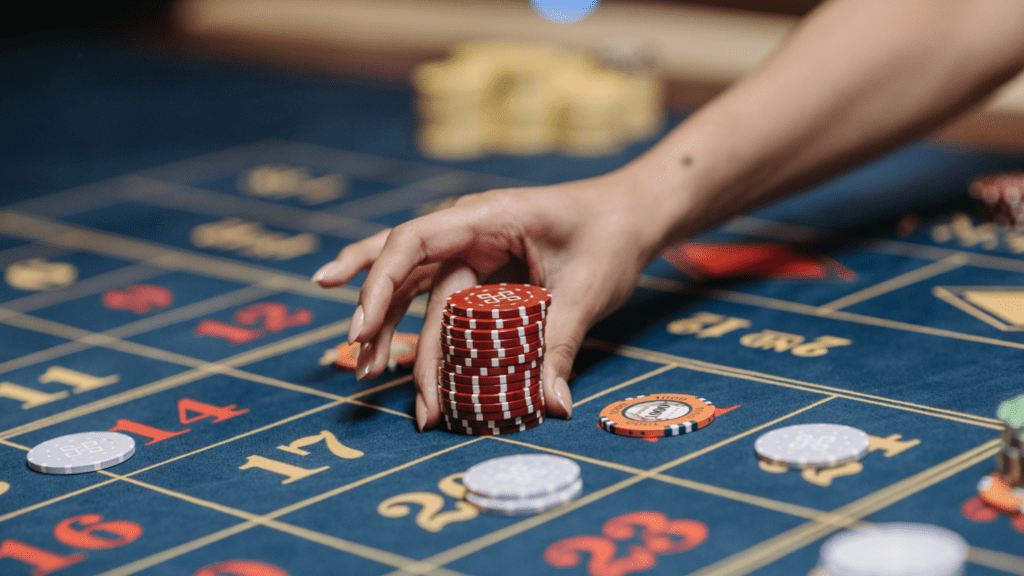When it comes to gambling, understanding the concepts of odds and house edge is crucial for making informed decisions. As a seasoned player, I’ve often encountered confusion surrounding these terms. In this article, I’ll break down the disparity between odds and house edge, shedding light on their significance in the world of casinos and betting.
Odds represent the probability of a specific outcome occurring, dictating the potential return on a bet. On the other hand, the house edge is the advantage the casino holds over players in any game. Distinguishing between these two factors is essential for devising a successful gambling strategy. Join me as I delve deeper into the nuances of odds and house edge, empowering you to make smarter choices when wagering your stakes.
Understanding Odds and House Edge
In gambling, understanding the concepts of odds and house edge is crucial for making informed decisions. Odds are the probability of an outcome occurring and determine the potential return on a bet. On the other hand, the house edge is the advantage that the casino holds over players. This section aims to clarify the disparities between odds and house edge, empowering readers to develop effective gambling strategies and make more intelligent betting choices.
Importance of Knowing the Distinction
Understanding the disparity between odds and house edge is crucial for anyone engaging in gambling activities. By recognizing how odds and house edge function differently, individuals can make informed decisions when placing bets. The knowledge of odds enables me to gauge the likelihood of winning a bet, while understanding the house edge helps me comprehend the advantage the casino holds in each game. This awareness empowers me to strategize effectively and enhance my chances of successful outcomes in gambling.
How Odds Impact Your Chances of Winning
Understanding how odds influence your likelihood of winning is essential in making informed decisions in gambling. Calculating odds in games of chance allows me to assess the probability of an outcome and make strategic bets based on that information.
Calculating Odds in Games of Chance
When I calculate odds in games of chance, I determine the likelihood of a specific event happening compared to all possible outcomes. This calculation helps me make informed decisions when placing bets, as I can assess the risk and potential return on investment.
House Edge Explained
Understanding the concept of the house edge is essential when engaging in gambling activities. The house edge refers to the statistical advantage held by the casino over players in a particular game. It’s a built-in advantage that allows casinos to generate profits over the long term. This advantage ensures that, on average, the casino will always come out ahead.
When I’m assessing a game to play, I always consider the house edge. A lower house edge indicates a higher chance of winning for me as a player. Games with a higher house edge reduce my odds of winning in the long run. Being aware of the house edge empowers me to make informed decisions about where to place my bets.
In every bet I make, I know that a portion of my wager will contribute to the casino’s profits due to the house edge. This knowledge doesn’t deter me from playing but rather encourages me to approach gambling as a form of entertainment rather than a guaranteed way to make money.
By acknowledging the impact of the house edge and factoring it into my gambling strategy, I can set realistic expectations and enjoy the thrill of playing while staying cognizant of the inherent advantages the casino holds.
Strategies to Mitigate House Edge
Understanding the house edge is crucial in developing effective strategies while gambling. Here are some practical approaches to mitigate the impact of the house edge and potentially improve your chances of winning:
- Choose Games Wisely: Opt for games with lower house edges such as Blackjack or Baccarat rather than those with higher edges like Slots or Keno.
- Utilize Strategies: Learn and apply proven strategies for specific games, as they can help reduce the house edge. For example, in Blackjack, basic strategy charts can optimize your decisions.
- Set Limits: Establish strict betting limits to prevent excessive losses. Setting boundaries on how much you’re willing to wager can safeguard your bankroll.
- Take Advantage of Bonuses: Utilize bonuses and promotions offered by casinos to offset the house edge. These incentives can provide additional value and extend your playing time.
- Practice Responsible Gambling: Maintain a disciplined approach to gambling by avoiding chasing losses and knowing when to walk away. Responsible gambling practices are essential in managing the impact of the house edge.
By incorporating these strategies into your gameplay, you can navigate the casino environment more effectively and make informed choices to enhance your overall gaming experience.



 Salvatore Loar is the insightful author of Gamble Wise Roots, a platform dedicated to delivering the latest news and updates from the gambling world. His expertise lies in simplifying casino basics, offering a clearer understanding of odds, and exploring the rich evolution of casino games.
Salvatore’s deep dive into the origins of betting provides readers with a well-rounded perspective on the history and strategies behind modern gambling. Through his work, he seeks to inform and engage players of all levels.
Salvatore Loar is the insightful author of Gamble Wise Roots, a platform dedicated to delivering the latest news and updates from the gambling world. His expertise lies in simplifying casino basics, offering a clearer understanding of odds, and exploring the rich evolution of casino games.
Salvatore’s deep dive into the origins of betting provides readers with a well-rounded perspective on the history and strategies behind modern gambling. Through his work, he seeks to inform and engage players of all levels.
